-
main-collection-product-grid
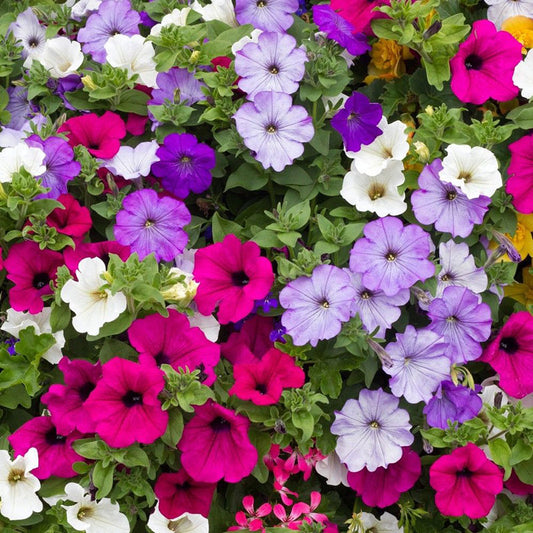
Petunia Seeds - Balcony Mix
Our favorite petunia collection for hanging baskets and container gardensPetunia Seeds - Balcony Mix
Our favorite petunia collection for hanging baskets and container gardensRegular price $5.79Regular priceUnit price per -
main-collection-product-grid
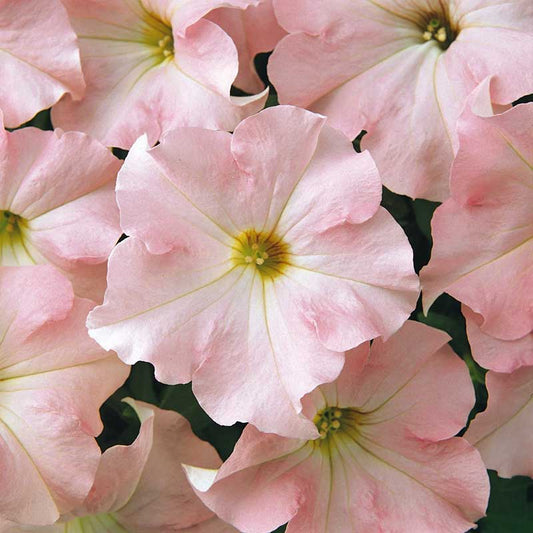
Petunia Seeds - Dreams Appleblossom
Blooms mid spring to late summerPetunia Seeds - Dreams Appleblossom
Blooms mid spring to late summerRegular price $6.29Regular priceUnit price per -
main-collection-product-grid
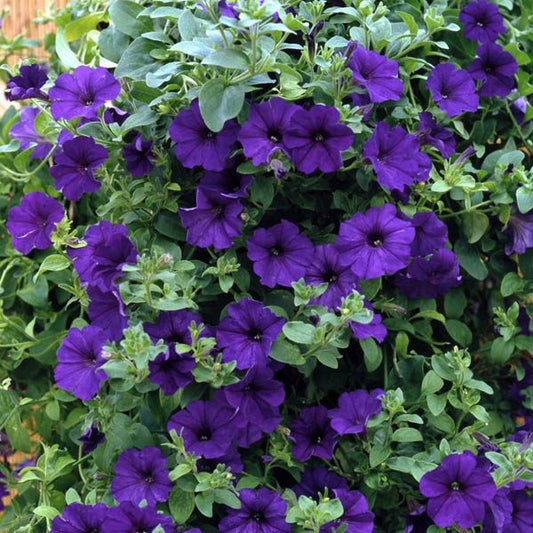
Petunia Seeds - Alderman Blue
Early blue-violet blooms have the longest bloom window of any petuniaPetunia Seeds - Alderman Blue
Early blue-violet blooms have the longest bloom window of any petuniaRegular price $5.79Regular priceUnit price per -
main-collection-product-grid
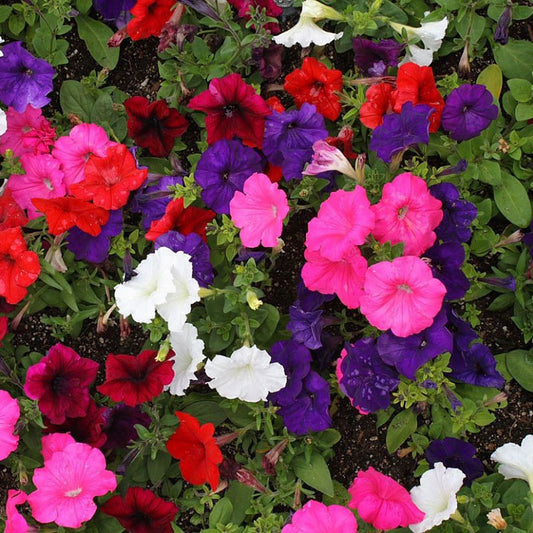
Petunia Seeds - Dwarf Mix
This compact mix doesn't skimp on color with bright purple, pink, and white flowersPetunia Seeds - Dwarf Mix
This compact mix doesn't skimp on color with bright purple, pink, and white flowersRegular price $5.79Regular priceUnit price per -
main-collection-product-grid
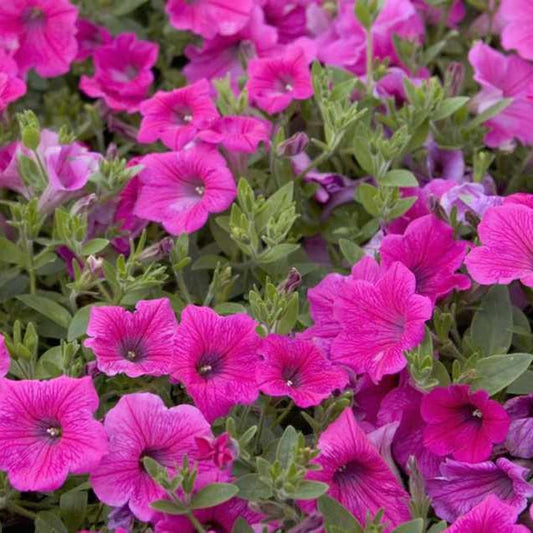
Petunia Seeds - Rose of Heaven
Long-lasting fuchsia blooms—our brightest solid colored petuniaPetunia Seeds - Rose of Heaven
Long-lasting fuchsia blooms—our brightest solid colored petuniaRegular price $5.79Regular priceUnit price per -
main-collection-product-grid
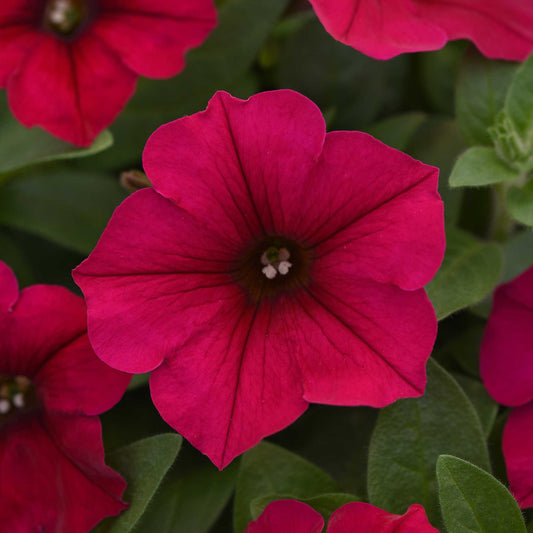
Petunia Seeds - Wave Carmine Velour
2019 All-America Selections Winner as one of the highest scoring plantsPetunia Seeds - Wave Carmine Velour
2019 All-America Selections Winner as one of the highest scoring plantsRegular price $5.79Regular priceUnit price per -
main-collection-product-grid
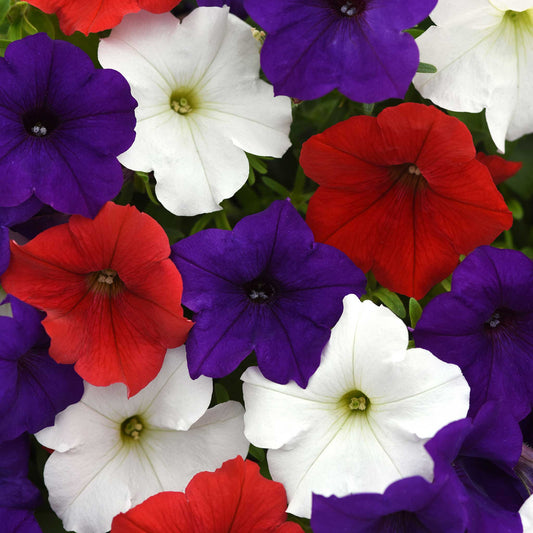
Petunia Seeds - Easy Wave The Flag Mix
The perfect mix for easy patriotic color nonstop all summer longPetunia Seeds - Easy Wave The Flag Mix
The perfect mix for easy patriotic color nonstop all summer longRegular price $5.79Regular priceUnit price per -
main-collection-product-grid
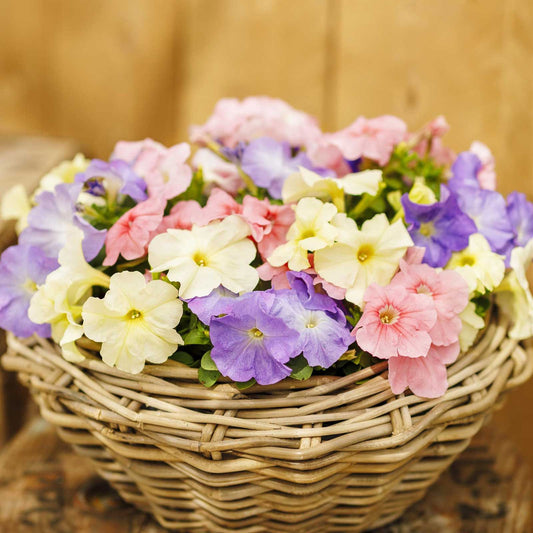
Petunia Seeds - Limbo GP Pastel Mix
Bright blooms on naturally compact plantsPetunia Seeds - Limbo GP Pastel Mix
Bright blooms on naturally compact plantsRegular price $5.79Regular priceUnit price per -
main-collection-product-grid
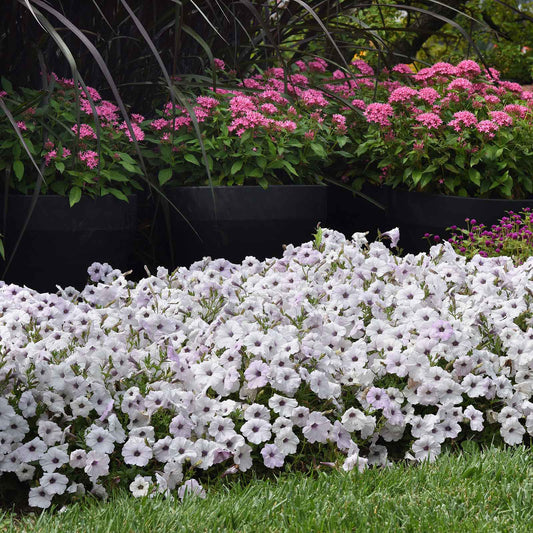
Petunia Seeds - Easy Wave Silver
Gives your garden low-growing, silvery-white blooms from spring through to fall frostsPetunia Seeds - Easy Wave Silver
Gives your garden low-growing, silvery-white blooms from spring through to fall frostsRegular price $5.79Regular priceUnit price per -
main-collection-product-grid
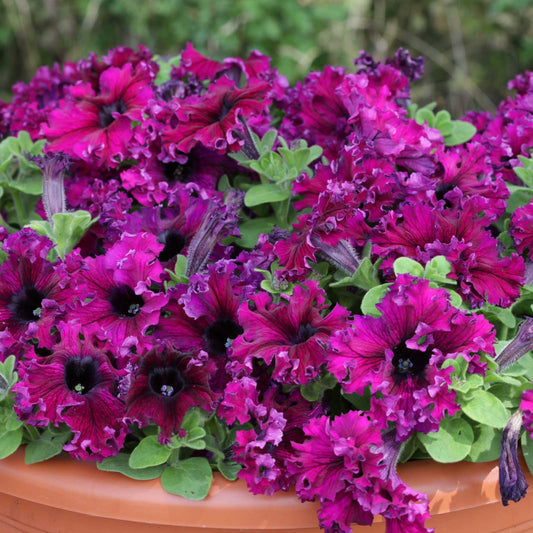
Petunia Seeds - Espresso Frappe Ruby
Bright color and dwarf habit well-suited for hanging baskets and patio potsPetunia Seeds - Espresso Frappe Ruby
Bright color and dwarf habit well-suited for hanging baskets and patio potsRegular price $5.79Regular priceUnit price per -
main-collection-product-grid
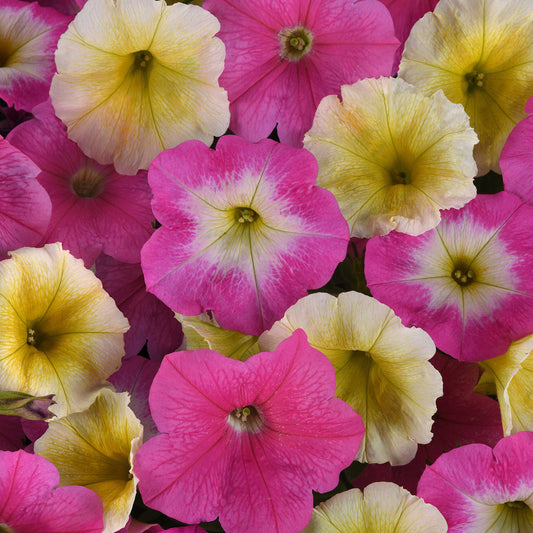
Petunia Seeds - Easy Wave Sweet Taffy
Confectioner's colors all summer longPetunia Seeds - Easy Wave Sweet Taffy
Confectioner's colors all summer longRegular price $5.79Regular priceUnit price per -
main-collection-product-grid
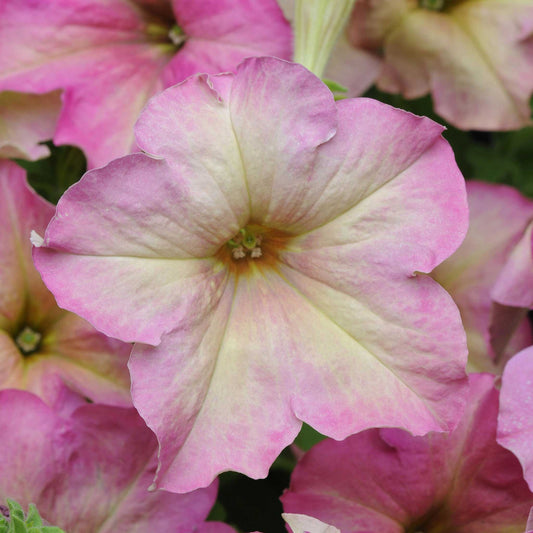
Petunia Seeds - Sophistica Antique Shades
Your garden's light and temperature will effect bloom colorPetunia Seeds - Sophistica Antique Shades
Your garden's light and temperature will effect bloom colorRegular price $5.79Regular priceUnit price per
What we love about growing petunia seeds
- 4 petunia seed varieties
- Stunning trumpet-shaped flowers that come in a range of colors
- Thrives in bright, sunny growing areas
- Long-lasting blooms from late spring through fall
the best petunias for containers or the garden
Petunias are native to South America where they were originally discovered in the 18th century. Thanks to the dedication of breeders, what were once lanky plants with simple white flowers now make an excellent bushy and colorful filler for any flower container or garden. These long-lasting annuals now boast a variety of deep purples, bright pinks, and reds, great for attracting pollinators to your garden.
planting petunia seeds
Start seeds inside 10 to 12 weeks before planting outside, after the risk of frost has passed and soil temperatures are around 60°F. Petunia seeds typically require seven to ten days to germinate and do best in consistently moist potting media with temperatures between 70 and 85°F. Petunia seeds are quite small and require light to germinate; sow seeds on the surface of the soil and do not bury. Maintaining high humidity and consistent temperatures will improve germination rates. Try covering your seed-starting container with a humidity dome or plastic wrap and misting regularly. Remove the cover once 10 to 15% of your seeds have germinated and continue misting regularly until most seedlings have emerged.
Petunia seedlings prefer bright light for 12 to 16 hours per day with temperatures around 65°F. Once plants have three sets of true leaves, pot them into lager containers such as plastic cell packs or old single-serving yogurt containers. Harden off plants for a week before transplanting them into the garden.
ideal conditions for your petunias
Petunias prefer full sun but will tolerate light shade, requiring at least five to six hours of light per day to bloom. They are resilient plants that can live in soil lacking rich nutrients but thrive when planted in soils rich in organic matter and/or that are fertilized regularly. Petunias do best in well-drained soils and, when planted in-ground, prefer about an inch of water per week. They don’t mind the heat and are relatively drought resistant, although those planted in hanging baskets and containers require more frequent watering. Plants should be spaced roughly eight to 12 inches apart in the garden and five to eight inches apart in containers and when planted in partially shaded areas. Removing faded or desiccated flowers (known as deadheading) will prevent seed formation and can help prolong blooming. This is a must for petunias planted in containers and will keep in-ground plants looking fresh and healthy.
For more information about planting, growing, and caring for petunia seed, see the Petunia Seeds Planting Guide.











